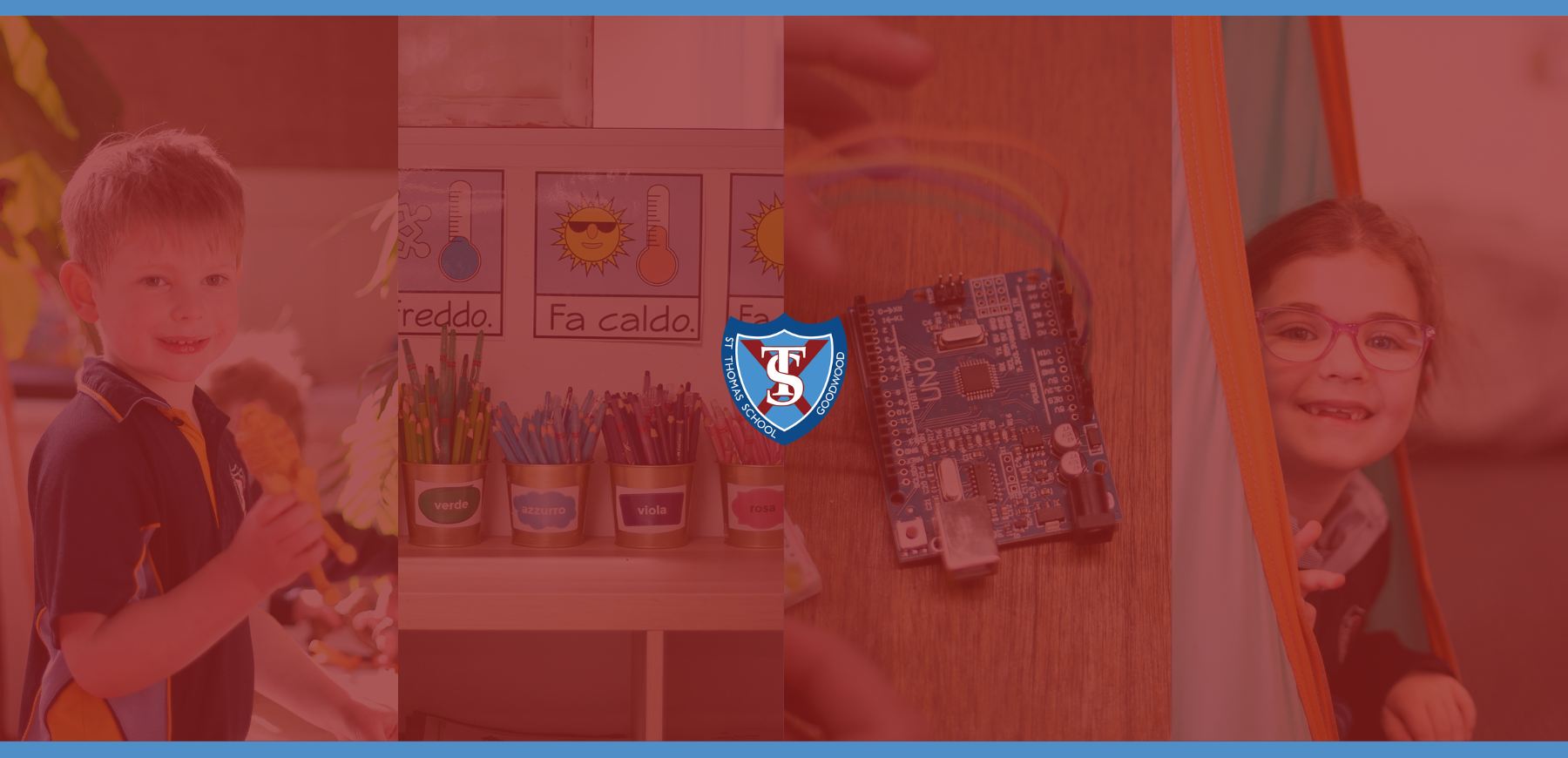Learning & Wellbeing
We believe that primary education serves as the cornerstone for a child’s lifelong learning and development. Our educational philosophy is centered on nurturing the whole child—academically, socially, emotionally, and spiritually—within a faith-filled environment. By integrating brain-based contemporary pedagogy, we aim to create a nurturing setting that partners with families to build strong literacy and numeracy skills, foster essential learner dispositions and capabilities, and develop lifelong learners and global citizens.
We believe that children learn best when they are:
Engaged and Motivated: Learning is most effective when it is engaging, meaningful, and connected to students’ interests and real-life experiences. We strive to create a stimulating environment that inspires curiosity and a love for learning.
Supported and Valued: Every child is unique and learns at their own pace. We provide individualised support and celebrate each student’s strengths, ensuring they feel valued and understood.
Active Participants: Learning is an active process. We encourage hands-on activities, collaborative projects, and inquiry-based learning to involve students actively in their education.
Reflective Thinkers: Teaching metacognitive strategies helps students become aware of their own learning processes. We promote reflection and self-assessment to help students understand how they learn and how they can improve.
We are committed to educating the whole child by addressing their academic, social, emotional, and spiritual needs. This holistic approach includes:
Academic Excellence: Providing a rigorous and balanced curriculum that challenges students and promotes intellectual growth.
Social and Emotional Development: Teaching social-emotional skills such as empathy, resilience, and effective communication. Creating a safe and supportive environment where students can express their feelings and build positive relationships.
Spiritual Growth: Integrating faith-based values and practices to nurture students’ spiritual development and moral character. Encouraging reflection on ethical issues and fostering a sense of purpose and community.
Our teaching methods are grounded in brain-based contemporary pedagogy, which emphasises:
Understanding How the Brain Learns: Applying insights from neuroscience to inform our teaching practices. This includes recognising the importance of a growth mindset, the benefits of spaced repetition, and the role of emotions in learning.
Creating Optimal Learning Conditions: Ensuring a learning environment that reduces stress and enhances concentration. This involves maintaining a positive classroom climate, providing opportunities for physical movement, and integrating mindfulness practices.
Utilising Technology: Leveraging Apple technology to support and enhance learning. Using interactive tools and digital resources to create engaging and personalised learning experiences.
Strong Relationships: Building strong, trusting relationships between teachers, students, and families. Encouraging open communication and collaboration to support each child’s learning journey.
Values and Faith: Embedding faith-based values in our daily practices and curriculum. Promoting kindness, respect, and responsibility, and providing opportunities for spiritual reflection and growth.
Inclusive Community: Ensuring that every student feels included and respected. Celebrating diversity and teaching the importance of empathy and global citizenship.
We recognise that families play a crucial role in their children’s education. Our commitment to partnership with families involves:
Effective Communication: Keeping families informed and involved in their child’s learning and progress. Providing regular updates, conferences, and opportunities for dialogue.
Collaborative Engagement: Working together with families to support students’ academic and personal development. Offering resources and workshops to help families support learning at home.
Community Involvement: Encouraging family participation in school activities and events to strengthen the school community and enhance the educational experience.
Building strong literacy and numeracy skills is foundational to our curriculum. We focus on:
Balanced Literacy Instruction: Integrating reading, writing, speaking, and listening activities to develop comprehensive literacy skills using a Playberry and IntiaLit - structure synthetics phonics programs, the science of reading and a structured writing approach.
Effective Numeracy Teaching: Emphasising problem-solving, critical thinking, and the practical application of mathematical concepts.
Continuous Assessment: Using formative and summative assessments to monitor progress and tailor instruction to meet individual needs.
Developing Learner Dispositions and Capabilities
We aim to cultivate essential learner dispositions and capabilities that will serve our students throughout their lives. These include:
- Critical Thinking and Problem-Solving: Encouraging students to think critically, ask questions, and solve problems creatively.
- Collaboration and Communication: Teaching students to work effectively with others, listen actively, and express their ideas clearly.
- Resilience and Adaptability: Building resilience by teaching students to embrace challenges, learn from setbacks, and adapt to change.
- Global Citizenship: Fostering an understanding of global issues, cultural awareness, and a commitment to making a positive impact in the world.
Our primary education philosophy is dedicated to nurturing the whole child within a faith-filled, supportive, and engaging environment. By focusing on brain-based contemporary pedagogy, strong literacy and numeracy skills, and the development of essential learner dispositions and capabilities, we aim to prepare our students to become lifelong learners and compassionate global citizens.

